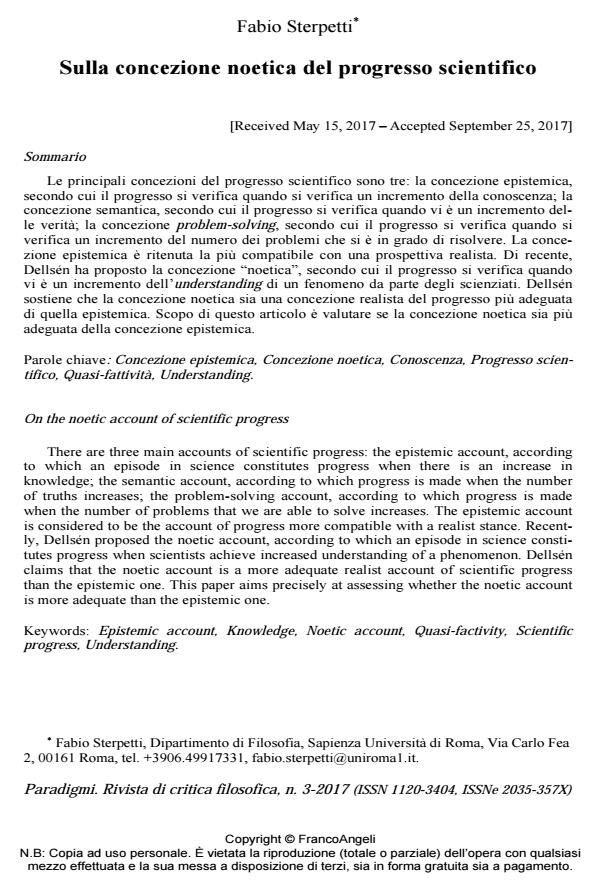On the noetic account of scientific progress
Journal title PARADIGMI
Author/s Fabio Sterpetti
Publishing Year 2017 Issue 2017/3
Language Italian Pages 21 P. 135-155 File size 229 KB
DOI 10.3280/PARA2017-003010
DOI is like a bar code for intellectual property: to have more infomation
click here
Below, you can see the article first page
If you want to buy this article in PDF format, you can do it, following the instructions to buy download credits

FrancoAngeli is member of Publishers International Linking Association, Inc (PILA), a not-for-profit association which run the CrossRef service enabling links to and from online scholarly content.
There are three main accounts of scientific progress: the epistemic account, according to which an episode in science constitutes progress when there is an increase in knowledge; the semantic account, according to which progress is made when the number of truths increases; the problem-solving account, according to which progress is made when the number of problems that we are able to solve increases. The epistemic account is considered to be the account of progress more compatible with a realist stance. Recently, Dellsén proposed the noetic account, according to which an episode in science constitutes progress when scientists achieve increased understanding of a phenomenon. Dellsén claims that the noetic account is a more adequate realist account of scientific progress than the epistemic one. This paper aims precisely at assessing whether the noetic account is more adequate than the epistemic one.
Keywords: Epistemic account, Knowledge, Noetic account, Quasi-factivity, Scientific progress, Understanding.
Fabio Sterpetti, Sulla concezione noetica del progresso scientifico in "PARADIGMI" 3/2017, pp 135-155, DOI: 10.3280/PARA2017-003010